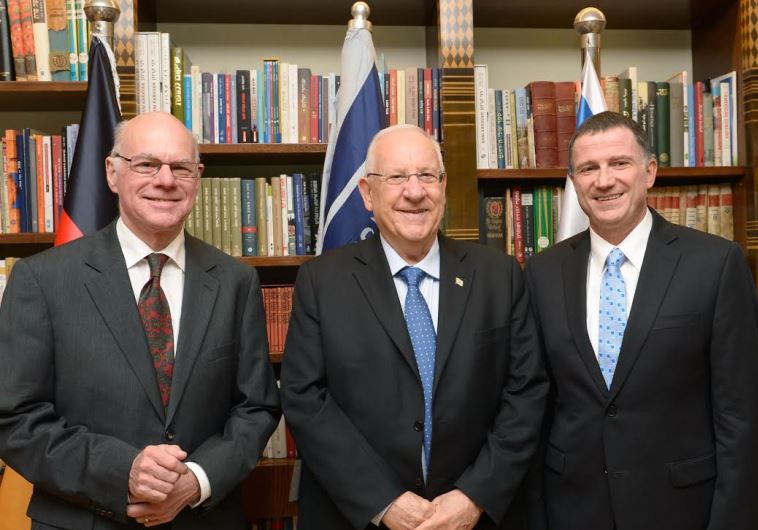Who’s on the guest list?
It is customary for heads of foreign missions that are hosting national day receptions to invite former Israeli ambassadors to their countries.
 (l-r) Bundestag President Norbert Lammert, President Reuven Rivlin and Knesset Speaker Yuli Edelstein(photo credit: MARK NAYMAN)
(l-r) Bundestag President Norbert Lammert, President Reuven Rivlin and Knesset Speaker Yuli Edelstein(photo credit: MARK NAYMAN)